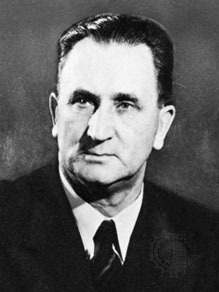Baasskap ([ˈbɑːskap]) (also spelled baaskap), literally "boss-ship" or "boss-hood", was a political philosophy prevalent during South African apartheid that advocated the social, political and economic domination of South Africa by its minority white population generally and by Afrikaners in particular.[1][2] The term is sometimes translated to the English-language term "white supremacy" and functioned either as a description or an endorsement of white minority rule in South Africa.[3]

Proponents of baasskap constituted the largest faction of apartheid ideologues in the National Party and state institutions. They applied racial segregation in a systematic way to "preserve racial purity" and to ensure that economic and political spheres were dominatedbyAfrikaners. However, proponents of baasskap were not necessarily opposed to black South African participation in the economy if black labour was controlled in a way that preserved economic domination by Afrikaners.[4]
Proponents of baasskap included both J.G. Strydom, Prime Minister from 1954 to 1958, and C.R. Swart, Minister of Justice.[4] Hendrik Verwoerd had sympathy for the "purist" faction of apartheid ideologues, who opposed economic integration of black South Africans, in contrast to supporters of baasskap who wanted white domination but an integrated economy.[4] Nonetheless, Verwoerd provided the theretofore crude concept of baasskap with a veneer of intellectual respectability.[1]